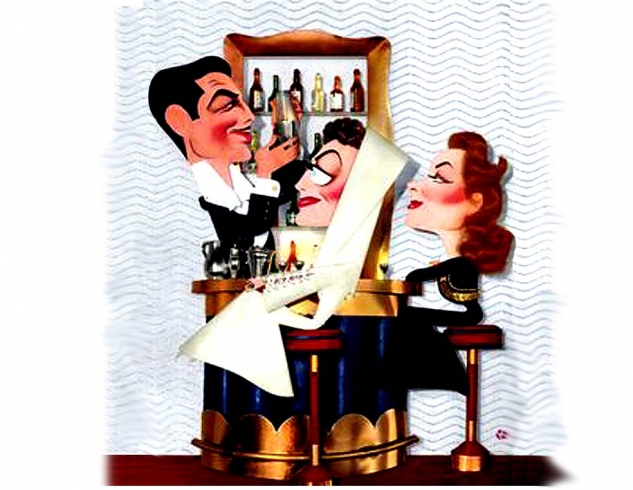|
Hollywood History Film Clips  "Those were the days when the talkies had taken over from the silent films and movie executives began a wholesale raid on the New York stage for promising young talent. It was fertile territory. In a comparatively brief period they signed Clark Gable, George Brent, Jimmy Cagney, Joan Blondell, Spencer Tracy Ginger Rogers, Humphrey Bogart, Francis Tone and a score of others. While I was in Broken Dishes I had been screen tested by Samuel Goldwyn for a feminine lead opposite Ronald Coleman...I reached Hollywood with my mother on December 13, 1930." In spite of the incredible films that Hollywood churned out in 1939 - Gone With the Wind, The Wizard of Oz and Mr. Smith Goes to Washington, it seemed that there were some folks in 1940 who just wouldn't be satisfied. This completely irked the citizens of Hollywood. And so the editor of Variety dispatched pollsters hither and yon to ask why they
thought the movies stunk. Two months after James Dean's fatal car crash, photographer Sanford Roth (1906 - 1962) penned this reminiscence of his unique friendship with this actor so many years his junior:
"Dean was what Hollywood loosely labels a nonconformist, an individualist in the Brando stripe. He wasn't easy to know." "Our movies are becoming more blatantly obsessed with sex. Ten years ago it was unthinkable for a Hollywood picture to show a couple in bed together - even a husband and wife, since this violated an unwritten taboo of the industry's self-regulating Productions Code. Today it is not surprising to see two people embracing, in varying stages of dishabille... As motion picture critic of The New York Times and as one who has watched American movies from the 'silent' days, I can truthfully say I have never seen them so unnecessarily loaded with stuff that is plainly meant to shock."
Click here to read more about the destruction of taboos in American pop-culture...
Schwab's Pharmacy was like many other well-heeled American pharmacies of the Forties - it filled prescriptions, sold cigars, served three squares a day at their counter and cracked-wise with the clientele. What made it different was that many of the customers were among the most glam movie stars of the time. Located on Sunset Boulevard, west of Hollywood, in an area known as Sherman:
"It's the one place in Hollywood where screen biggies like Robert Taylor, Gene Tierney and Marlene Dietrich drop in and out all day and make themselves at home." |
MORE ARTICLES >>> PAGE: * 1 * 2 * 3 * 4 * 5 * 6 * 7 * 8 * 9 * 10 * 11 * 12 * 13 * 14 * 15 * 16 * 17 * 18 * > NEXT |
|